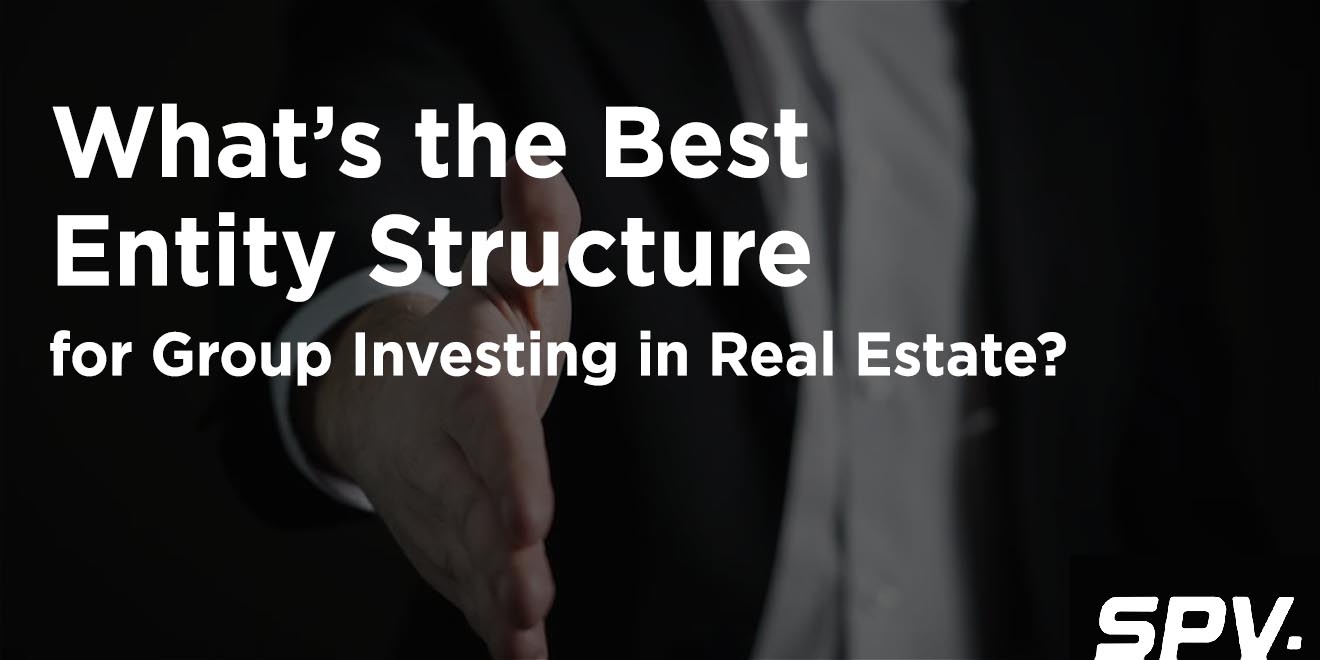-
January 21, 2026

Anyone who has ever tried to pull friends, family, or outside investors together for a real-estate deal learns quickly that the first big decision isn’t the neighborhood, the lender, or even the projected cash-on-cash return—it’s the legal wrapper. Pick the wrong one and you can end up with tax headaches, personal-liability surprises, and a cap table that looks like spaghetti.
Pick the right one and the project hums along, profits flow smoothly, and everyone sleeps at night. In this landscape, Special Purpose Vehicles have become a buzzword for good reason, but they’re just one of several tools available. Below is a practical roadmap to help you decide which structure best fits your group investment plans.
Real estate is an asset class of hard walls, leaky roofs, and slip-and-falls, so shielding personal assets should be a starting point. The entity you select dictates how far a plaintiff, lender, or regulator can reach into your personal pockets. Corporations and LLCs traditionally offer a strong barrier; general partnerships do not.
Rental income, depreciation, and capital gains each behave differently under the tax code. Some structures allow pass-through treatment (profits glide directly to investors’ individual returns), while others create a separate taxpaying entity. That choice impacts everything from how depreciation is allocated to whether you can enjoy the coveted 20% Qualified Business Income deduction.
With two investors, you might decide everything over coffee. With twenty investors, you’ll need voting thresholds, veto rights, and a written operating agreement. Certain entities, such as LLCs, can be customized almost infinitely, while others, like corporations, stick to a more rigid board-and-shareholder model.
A GP is the legal equivalent of a handshake: simple, cheap, and quick—until something goes wrong. Every partner is jointly and severally liable, meaning one lawsuit or busted loan covenant can cascade into personal-asset exposure for all. Tax filing is straightforward, but few serious investors are comfortable with the liability risk.
LPs split the investor pool into two camps: general partners (active managers, unlimited liability) and limited partners (passive investors, liability capped at their investment). LPs are a staple of private-equity and large real-estate syndications, especially in states like Delaware. Downsides include the requirement for at least one partner to shoulder unlimited liability and a governing partnership agreement that can be more rigid than an LLC’s operating agreement.
The modern favorite. LLCs combine corporate-style liability shielding with partnership-style tax pass-through, all wrapped in a flexible operating agreement. Members can decide how profits are split, who votes on what, and how new capital is admitted. For multi-property holdings, each asset can be “series LLCed” or ring-fenced under its own subsidiary if local statutes allow.
When a project’s investor count gets large and diversified enough, converting to or forming a REIT can unlock unique perks: exemption from corporate income tax at the entity level (if 90% of taxable income is distributed as dividends) and easier access to public capital markets. For smaller, single-asset deals, however, the administrative overhead outweighs the benefit.
An SPV—alternatively called a single-purpose entity—is formed solely to own one asset or project. Because the entity holds nothing else, lenders and investors gain comfort that liabilities are ring-fenced. An SPV is often structured as an LLC or LP, but with charter documents limiting its activities to a single property. More on SPVs below.
Entity selection may not be as glamorous as picking interiors or forecasting NOI, but it underpins every other decision in group real-estate investing. LLCs dominate the landscape for their mix of protection and flexibility; LPs remain a classic for sponsor-passive-investor splits; REITs serve large, distribution-minded portfolios; and Special Purpose Vehicles offer laser-focused liability shields that lenders adore.
Evaluate your investor base, deal size, risk tolerance, and exit goals. Then pick the legal wrapper that lets your project—and your investors—prosper with confidence.

Get Latest News and Updates From VID.co! Enter Your Email Address Below.
Our team is here to guide you through every step, whether you’re launching a real estate SPV or need a tailored white label solution. Contact us today for a personalized consultation and find out how SPV.co can streamline your investment management.